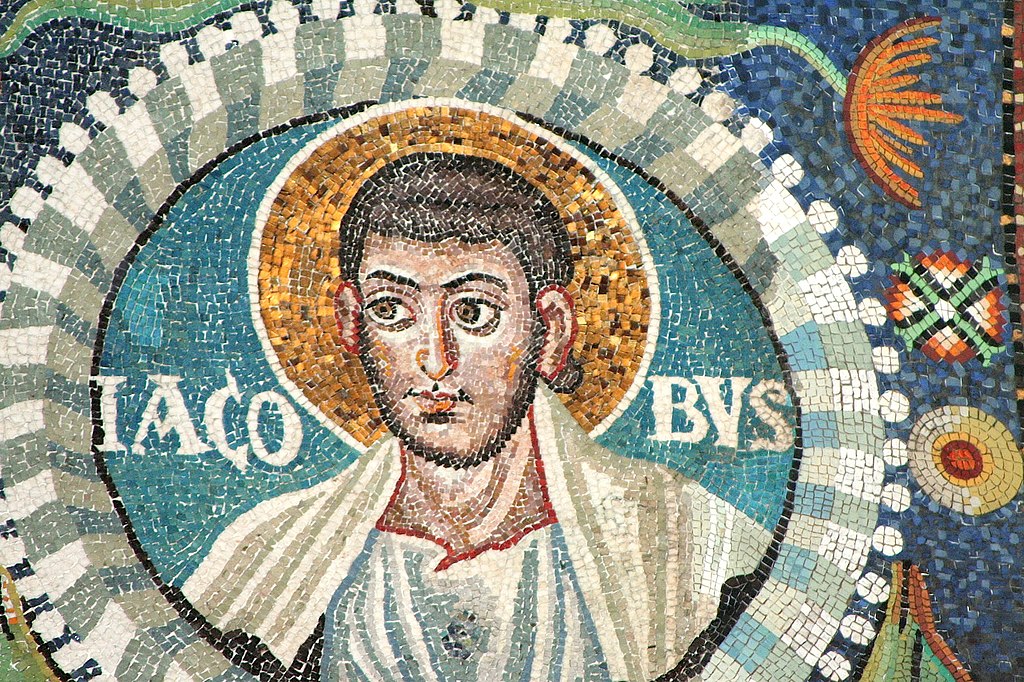
The Romans had concerns about drought at this time of year. Three very old festivals were grouped together at the end of July to honor deities who presided over watery things.
The first was the Lucaria, the clearing of the groves. This was an ancient observance even in Varro’s time (116-27 BCE), and little is preserved of the festival save its name and date. It is thought that orchards and vineyards would be cleared of weedy plants and brush, a task that would have saved scarce moisture and nutrients for the trees and vines.
The second festival was the Neptunalia, observed on 23 July. Neptune was the god of both freshwater and the seas, but this festival was celebrated in the fields. Much like the Jewish holiday of Sukkot, people of all classes fanned out into the countryside and built huts out of leafy branches. In these small shelters they would feast and amuse themselves. There were also ludi (games), and the day was one of the citizen voting days in Rome. But the core of the festival seems to have been tied to agriculture, and specifically the water that goes into plants.
The third festival was Furrinalia, celebrated on 25 July. Furrina was a watery goddess who presided over a sacred grove in Rome. A flamen was assigned to her, but again this is a very old holiday and Furrina was so obscure even in Varro’s time that few people remembered her name. She was, however, explicitly tied to both water and trees.
This sequence of ancient watery holidays falls late in the Dog Days of summer, a time when Rome was stressed by heat. The summer grain harvest would be completed, or nearly so, but apples and pears, peaches and other pit fruits, olives, grapes and most nut crops would all be the tender stage of swelling the fruit. Drought in this time stresses trees and yields fruits that are little but seed covered in a thin rind. Heat and dry conditions can also weaken the tree so that any pestilence and preying upon leaf or bark might be lethal. This time of the year was distressing for both trees and farmers. The loss of a grain harvest can be remedied in the next cycle, with planting and harvesting occurring almost continuously year-round in Rome. An orchard lost to drought can take decades to restore, and even just one failed harvest means going without those tree crops for a year or more. I can only imagine the anxiety an orchardist would be feeling as each day failed to bring rain.
One wonders if it might do some good to call on the water gods this year. It certainly can do no worse than the heat dome that has settled in over much of Europe, baking the continent, setting daily heat records, and exacerbating fire season all around the Mediterranean. If you’re of a mind, set aside a moment for Furrina today, asking that she set loose her springs and bubbling streams to quench the fires and the the fears.
July 25th is also the feast day of St James. James the Apostle was one of the Twelve Disciples of Jesus and the first martyr to Christ. James preached in the lands we now call Spain. He was particularly associated with Galicia. It is thought that, upon his martyrdom, his body was taken to northwest Spain and buried in Santiago de Compostela, the city in Galicia that grew around the saint’s cult. (Santiago means St Iago, James’ original name. Compostela is likely derived from composito tella, or ‘burial ground’.) This city, with its magnificent cathedral, was and remains an important site of pilgrimage.

Like many in Jesus’ fellowship, James and his brother John were fisherfolk before being called. Legend states that James and John were on the shore with their father, Zebedee, when Jesus found them. James seems to have travelled extensively as a preacher and may be the only Disciple to have crossed the Mediterranean. James kept his watery association even after death. One of his symbols is a scallop shell, and he is patron of oyster fishers.
In an interesting twist of myth and matter, James’ cult site, Santiago de Compostela, is decidedly wet, with cloudy days, fog and high rainfall — almost three times the average precipitation in Spain. However, most rain falls in the cold months. On average, July is very dry, and the Feast of St James falls in the middle of the dry season — a season of drought in the middle of the growing season. I’m sure this makes for stressful food production.
But this is also the middle of the oyster season, and in Victorian London the feast on St James’ Day was oysters. Oysters were not a delicacy in those times. Common people ate them by the pound. On St James’ Day, piles of shells littered the streets of London, and London’s most inventive entrepreneurs, the street urchins, turned the waste into windfall. The kids would gather up the shells along with other shiny bits and bobs, flowers and fabric scraps, and weave it all together into miniature grottoes, in memory of the cave where James hid when Jesus was arrested. The children would light candle stubs in their tiny works of art, letting the light play on shell and glass and tin, grabbing the attention of those passing. When an adult chanced to look their way, the children would hold out their hands and say ‘Remember the Grotto’ in hopes of getting a coin. It is said that some were quite successful, which surprises nobody, I suppose…
This quaint tradition was coopted in latter days with kids from all classes decorating mini-grottoes on 25 July, though some still honor the old, pre-calendrical reform date for St James Day on August 5th. In any case, St James’ Day is also known as Grotto Day in English-speaking places, and James’ association with water — especially hidden water, water underground — is all the stronger.
So, in summary, today is a day to pray for water from the hidden deeps to bring relief in times of drought. It has been for millennia. This is when the warmth of summer tips over into blasting heat and the sun transforms from friend to fiend. Blue skies are needed for the grain harvest, but that’s ending soon and everything else craves moisture as we head into autumn.
Everything except Vermont.
I will not be invoking Furrina or making a grotto for St James. I am done with wet. But if you need it, maybe I can put in a good word with whatever rain god is parked over Vermont this month. Maybe we can shift their fat ass off New England to go put out Canadian fires or something. (Or was that a bit too much blasphemy… probably shouldn’t antagonize them…)
©Elizabeth Anker 2023


